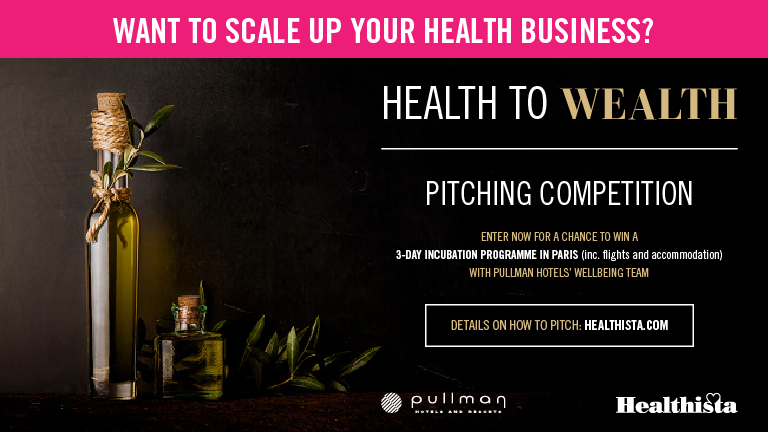Cystitis is bad enough but what if the pain never goes away? Erica Welu, 50, shares her story of coming to terms with interstitial cystitis, a life-changing, painful bladder condition without a cure
In the summer of 1985, I was 16 years old and had just become sexually active, when I began to get frequent, painful urinary tract infections (UTIs).
In most cases a UTI is painful but shortlived and can be cleared in a few days with a one-off prescription of antibiotics. But for some women, like me, the pain is unbearable and returns frequently.
While I’d always had UTIs, starting in 2005, I would have all the symptoms of a UTI, but the lab tests would come back normal. This was a turning point because before then, the test would show an actual infection. Now, it didn’t.
It wasn’t until the fall of 2006, more than two decades after my bladder issues started, that I was finally diagnosed with a condition called interstitial cystitis.
There’s no known cause of IC and doctors are unsure about what triggers it
Interstitial cystitis, abbreviated as IC, is defined as discomfort, pressure, or pain in the bladder, along with frequent and an urgent need to urinate, that isn’t explained by infection, like a urinary tract infection (UTI) or another condition, like cancer.
There is no known cause of IC, and doctors are unsure what triggers it. There is no obvious infection in the bladder and antibiotics don’t help.
Between 700,000 and one million Americans are estimated to have IC and most of those who suffer from it are women. The average onset age is 40.
When I was diagnosed, I was 36 years old, the stay-at-home mother of two daughters, aged five and eight. I lived in Sioux Falls, South Dakota and was lucky to eventually talk to a GP who recognised what was happening.
I had a female GP who suspected that my constant bladder infections indicated interstitial cystitis. She referred me to a urologist who specialised in the treatment of women and children with urology issues.
Interstitial cystitis – the diagnosis
At the time of my diagnosis, in 2006, IC was diagnosed by a procedure called cystoscopy – a camera is inserted up the urethra and into bladder to rule out cancer – with hydrodistension ( the bladder is filled with fluid to high pressure and then emptied, noting the bladder wall appearance before and after).
They were looking for ulcers or glomerulations. Hunner’s ulcers are a sure sign of IC, but only a small percentage of those diagnosed with IC have Hunner’s ulcers. Glomerulations are broken blood vessels. Fast-forward to 2019, and the current belief is that glomerulations are not indicative of IC and may even be caused by the stretching the bladder wall during hydrodistension, which is no longer used as an IC diagnostic tool.
I was told that the cystoscopy with hydrodistension would show either Hunner’s ulcers, glomerulations, or nothing.
My grandma was with me at the procedure. I needed a driver since I had to be put under anaesthesia
If the procedure showed nothing, I could still have IC. It would just mean that there was no visible proof of the condition. Interstitial cystitis was, and still is, a diagnosis of exclusion, meaning that after everything else is ruled out, when there is no other diagnosis, it’s called interstitial cystitis.
Coping with this life-changing condition
Before I had the procedure, I was in deep denial. I told myself right away that if the camera didn’t show anything on the bladder wall, then I would not accept that I had this disease and that it would be stupid to change my life if nothing showed up.
My grandma was with me at my procedure as I needed a driver since I would be under anaesthesia. My husband was at work and my daughters were in school that day.
I was pretty clueless, I didn’t think it was important enough for my husband to come. If I had known how much my life was going to change from that day forward, I would have asked him to accompany me.
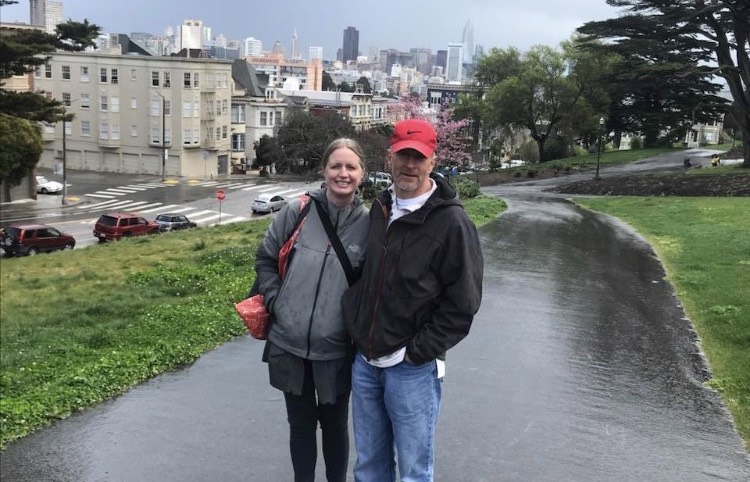
Thankfully – and, looking back, I am actually thankful because it meant that I was motivated to change my lifestyle – the cystoscopy showed glomerulations, which helped me accept that I had the disease, even though they are now considered unimportant.
I’ve always described my bladder as looking like a face full of acne when people asked about it.
I was very angry but at least I was moving toward some type of acceptance.
Some women with IC symptoms are apparently helped by having the hydrodistension performed, which still shocks me. It was a horrible experience for me and I suffered severe pain and bladder spasms for more than a year after having the procedure done.
I couldn’t believe I was going to have the symptoms of a bladder infection for the rest of my life with no cure
Looking back, I certainly think the diagnosis of IC could have come sooner than it did – we’re talking 20 years of suffering from repeated bladder infections – but considering where medicine was at the time, I’m not surprised it took that long for the proper diagnosis.
I was lucky to eventually talk to a general practitioner who recognised what was happening. A lot of doctors weren’t paying attention to IC at that time. Many of the doctors, depending on when they received their medical training, would have considered IC to be an unlikely diagnosis.
I was told right away after being diagnosed, that IC had no cure. I was devastated. I couldn’t believe I was going to potentially have the symptoms of a bladder infection for the rest of my life with no cure.
Urinary tract infections are a horribly painful condition for most women, and for IC sufferers they are worse yet. No cure and no clear treatment sounded like a life sentence.
Interstitial cystitis – the medications I’ve tried
Right after my surgery, I was given a medication to numb the urinary tract post-procedure, the same medication you’re given if you have a UTI. In theory you could stay on this medication forever, but I didn’t stay on it for more than a few days because it discolours your urine which stains your underwear and your urine and loo, which really bothered me.
The first medication I took regularly for IC was amitriptyline, a strong painkiller which is commonly prescribed for interstitial cystitis. Early on, I also tried both bladder instillations, which deliver drugs direct to your bladder via a small catheter and Elmiron.
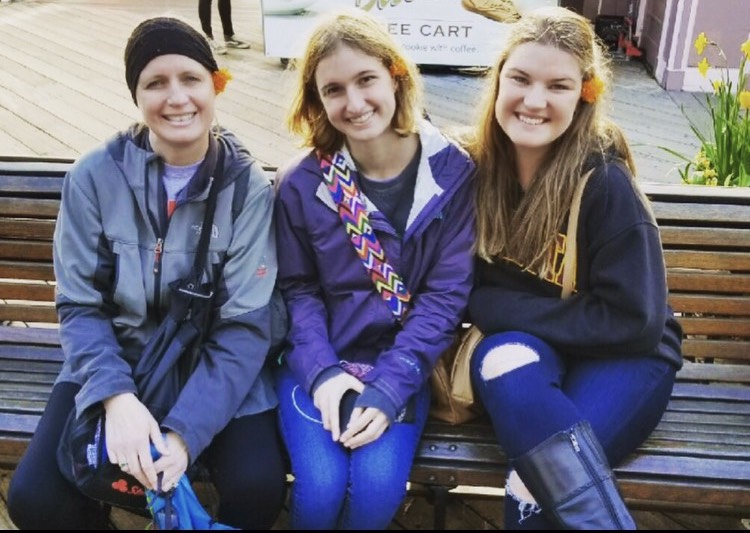
Elmiron is the only medication on the market that’s specifically made for IC patients. It forms a layer on the bladder wall to protect it from harmful substances in the urine. I only stayed on it for six months. One of the downfalls is that you can’t eat for two hours before or after you take it, which is pretty impossible for me, so I didn’t take it as prescribed when I was using it.
I didn’t take any of these drugs for long, in fact, as I was extremely against medication. I was determined to fix myself and I wanted to try a more natural route using homeopathic treatments and diet.
Could fizzy drinks be to blame?
IC has no known causes, and no clear treatment plan. It’s generally thought that lifestyle change, like cutting out certain foods can help reduce your symptoms, but there’s no real proof.
I started to get more interested in the correlation between my health and nutrition after my diagnosis.
Before I was diagnosed with IC, I couldn’t have cared less about nutrition. I would even judge people who cared about healthy food and would make fun of them for it.
When it comes to IC, what affects one person badly might not affect another person in the same way
But my physical therapist told me that soda could be the main culprit, due to its high acidity, which can destroy the bladder lining. This really made me curious about the correlation between nutrition and health and I started reading articles about all kinds of nutrition, but especially the connection of soda and IC.
Some experts believe that it’s a good idea to cut out carbonated, alcoholic, and caffeinated beverages when you have IC, but there’s no real diet that works for everyone with the diagnosis – what affects one person badly might not affect another person the same way.
Changing my diet
My diagnosis made me look back on my dietary choices over my life and I realised that I’d done my best to avoid drinking water every day. It was partially because I didn’t want to have to pee constantly, but also because I thought water was boring. I’d rather have a diet soda or a wine cooler even though water is healthiest drink option regardless of if you have a medical condition or not.
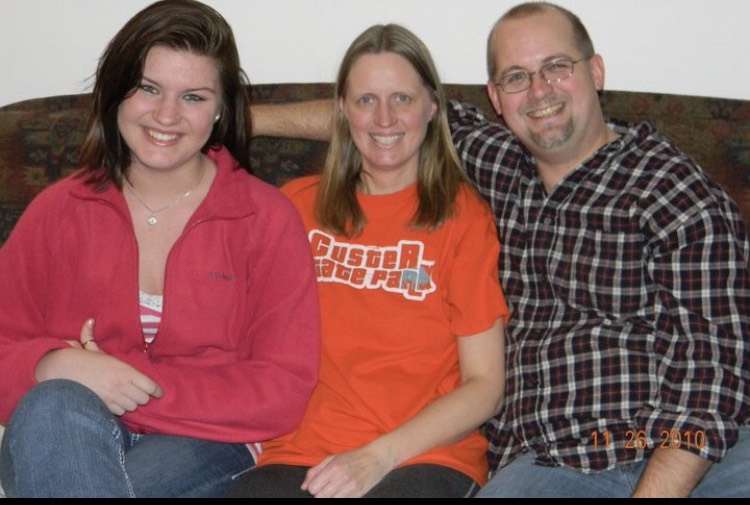
I wasn’t necessarily addicted to soda, but I probably had a diet soda every day before my diagnosis. I would’ve been trying to lose weight before I was diagnosed, so diet soda would’ve been my daily treat.
The first major health change I made was completely cutting soda and alcohol out of my diet. More than that, I became the pop Nazi, and refused to let my kids drink fizzy drinks either.
I don’t necessarily think soda and alcohol were the only causes of my IC – I certainly had plenty of issues with food as well, and when I started thinking about my nutrition I realised that my diet had consisted mostly of processed foods.
I even fed my kids processed crap American cheese and cheap hot dogs and we’d stop at Krispy Kreme Donuts all the time, but after the IC diagnosis I started to make big changes.
I became the pop Nazi and refused to let my kids drink fizzy drinks
The first diet I tried was the Candida Cleanse, a diet that eliminates sugar and white flour. Pretty much all I ate for a month or two was meat and vegetables. There’s no proven connection between any of this and IC, because pretty much nothing is proven when it comes to IC, but I thought that if I improved my diet I could cure myself of my disease.
It did help my general health, curing my chronic athlete’s foot and lowering my cholesterol, and I even lost a ton of weight that needed to come off, but it didn’t help my IC.
Sex with interstitial cystitis
I can honestly say that IC has never prevented me from doing anything. I never say, ‘Oh, I wish I could do that, but I’m in too much pain.’
I am in pain, but it isn’t bad enough that I don’t do things because of it. But one thing that did suffer was my sex life, because sex was giving me UTIs – even though IC isn’t caused by infection, I would still get infections when I had sex. That made me fearful of what was coming after sex.
I also had to take antibiotics – and still do – after I have sex, and I was aware that being on antibiotics constantly would hurt my gut bacteria, and I didn’t want to give myself even more health issues.
I was bitter that I had to sacrifice another aspect of my health just to have sex with my husband, and by this stage sex wasn’t even all that interesting to me because of my chronic pain.
I would think, ‘This isn’t fair, I have to have sex with my husband to make him happy, but I have to sacrifice my health for it.’ I never said that to him directly, but I think he knew.
I was bitter that I had to sacrifice my health to have sex
In 2008, I was also diagnosed with a chronic pain condition called clitorodynia, which can cause actual pain during sex. It’s a subset of vulvodynia which is chronic pain in the vulva with no identifiable cause.
My pain was confined to the clitoris, but it was unprovoked pain, so it was constant and hurt every time I walked or moved.
My urogynecolgoist saved my sanity by pressuring AGB cream – a compound cream of Amitriptyline, Baclofen, and Gabapentin – that I’ve used once a day for the past eleven years. I don’t know what I would have done without that medication.
The treatments that helped me
The biggest hurdle I’ve had to overcome is accepting that I need to take medication. Today, I help my chronic pain by taking 200 mg of the painkiller Tramadol daily, combined with 5 mg of Methylphenidate, a stimulant which is typically used to treat ADHD but limited research has indicated has an effect on lower urinary tract function. I have to see a pain management specialist every three months to stay on this regiment to make sure that I still need the medication.
I also take allergy medications to keep my histamine levels low, and that’s what helps me most. I’ve taken hydroxyzine for years, and in the last few months have started taking Montelukast as well. I need to keep my histamine levels down, and if I don’t take these meds my bladder pain increases.
I’ve had to come to terms with taking an antibiotic after sex. I used to take 100 mg of nitrofurantoin every time I had sex, but I recently reduced that to 50 mg by my own choice, though my doctor agreed with my decision.
If I have a bad bowel day, I have a bad bladder day – IC goes hand in hand with constipation. It’s important that, along with my medications, I take MiraLAX to help constipation, and probiotics to help my gut.
Even though I’m not on a candida diet anymore, I try to avoid sugars and grains, though I’ll cheat once in a while.
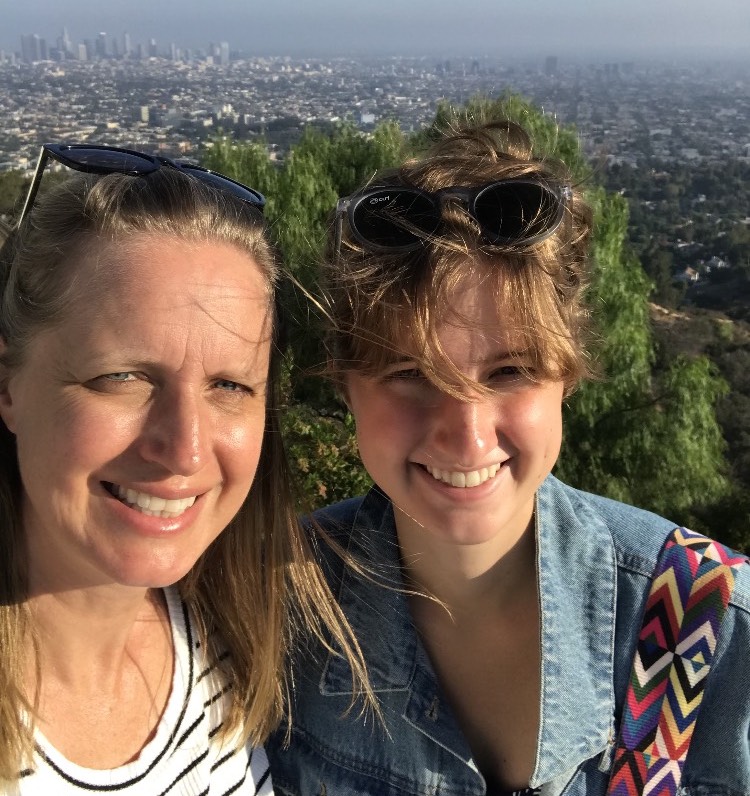
I’m less strict about exercise than about diet – I think of it as a necessary evil. It’s a regular part of my routine to walk 15,000 steps a day, and I firmly believe it’s helped reduce my chronic pain by keeping me active.
I’ve tried countless alternative health methods as well as traditional allopathic or homeopathic methods. Early on, I tried acupuncture and Chinese herbs, and more recently I’ve started using essential oils. I also take daily Aloe Vera capsules, an unproven way of healing bladder walls.
I also take D-Mannose every day, a simple sugar meant to keep the bladder free of bacteria, along with Prelief, a supplement that helps alkalinise acidic foods. Both of these were recommended to me by medical doctors, however.
It’s hard to say of any of these things helped me or not because I take so many things at once, but I keep using them just in case. None of them have cured my IC, but I do think everything I do is at least somewhat helpful.
What I learned
There’s no real known cause of IC, and while I believe I could’ve had a genetic predisposition to the disease, I also think that the choices in my life contributed.
I couldn’t ‘cure’ myself of my IC with nutrition and exercise, it’s not possible for me to treat my condition with just homeopathic remedies. I need medication.
This whole ordeal has taught me, more than anything, that I need to teach my daughters about preventive healthcare.
There’s nothing definitive that says IC could be hereditary, but my younger daughter has been diagnosed with overactive bladder that started when she was eight. She’s 18 now. My older daughter, who’s 20, has shown no signs of the disease. My greatest fear is that they will start to get UTIs like I did.
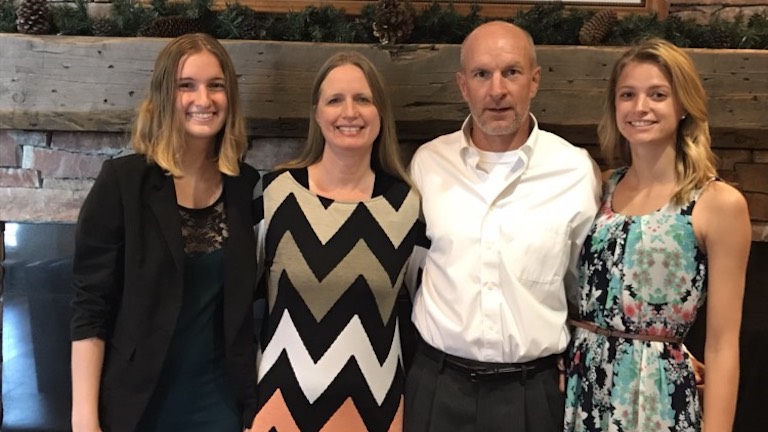
I’ve met several other women who have IC and talked on the phone with more yet. Every woman’s story is different, and some really stick with me. Unbelievably, there are women out there diagnosed with IC who have never had a bladder infection before in their lives.
I know that my condition isn’t nearly as bad as it could be and I’m thankful for that.
A lot of women can’t get a decent night’s sleep because they have to get up to pee every 20 minutes. Some can’t leave their house or get on a plane or travel any distance because of their bladders.
I’m also grateful I was diagnosed after 2000, as in the past and throughout history, those with IC suffered much more and not just because medicine wasn’t as far along. Because IC primarily affects women, it was often treated as psychosomatic instead of an actual disease.
What those women went through was truly devastating compared to me – I’m able to get the treatment I need and I’m taken seriously by my doctors.
If you think you might have Interstitial Cystitis
- See a urologist or urogynecologist in a city, the bigger city the better. You’ll get more resources and expertise there.
- Keep a bladder diary where you record your symptoms, and take it with you to your doctor’s office
If you’ve been diagnosed
- Become more educated and informed – this will provide empowerment, especially because IC usually isn’t a subject doctors are experts in.
- Join the IC Network and the IC Association, two websites started by women who have the disease that provide resources to IC patients and publish new research. (If you have the other condition mentioned in this article, vulvodynia, you can find resources at The National Vulvodynia Association.)
- Read books – I learn something from every book I read.
- Don’t give up hope
Interstitial cystitis (IC) – the specialist’s opinion
Interstitial cystitis is a poorly understood bladder condition that causes chronic pelvic pain and frequency of urination.
We spoke with Dr Catriona Anderson (MBChB, MRCGP, BSc(Hons), DFSRH), an expert with The Urology Foundation, about IC and bladder pain. Dr Anderson is an expert on bladder conditions where infection is the root cause.
‘IC, or painful bladder syndrome, is a chronic inflammation of the bladder wall,’ Dr Anderson says. ‘Its cause is unknown because it’s very poorly researched. The research talks about possible defects in the bladder lining, and experts also hypothesise that it may be an autoimmune disorder.’
Dr Anderson has run a specialist clinic since 2012, Focus Medical Clinic, and she often meets with patients previously diagnosed with IC/PBS. However, she usually finds previously undetected infection in their urine because she uses more detailed testing than is routinely available at other clinics.
‘There may well be a condition where people get painful bladder syndrome without an infection trigger,’ Dr Anderson explains, ‘but the widely accepted threshold of bacterial count per millilitre of urine is based on a small, outdated study carried out in 1956 aimed at detecting kidney infection is missing countless cases of chronic and recurrent UTI, leading to a misdiagnosis of IC/PBS.
‘This most commonly used criterion is not set up to detect infection in this patient population because of the artificially high threshold. Many medical publications have detailed this since the 1956 criterion was adopted yet nothing has changed,’ says Dr Anderson.
Research has shown that the quality of life of someone with chronic and recurrent cystitis is equal to that of someone with terminal cancer
Dr Anderson finds infection in the vast majority of cases using extremely detailed lab cultures.
‘We then devise individualised treatment regimes for patients,’ she says. ‘We do use conventional antibiotics, but we also use naturopathic agents, lifestyle and dietary adaptations’
‘Some people are prone to flare-ups if they eat acidic foods, and can’t cope with tomatoes or orange juice, and white wine seems to be just terrible,’ Dr Anderson says. ‘Stress and sex can also be triggers.’
‘When I’m putting a treatment plan together, we go in all guns blazing,’ Dr Anderson says. ‘Once we’ve got it under control, then we can start pulling away and just leave the patient with naturopathic treatment.’
Dr Anderson sees a success rate of well over 70 per cent in relieving symptoms using this holistic system. However, she always makes it clear that this is symptom relief, a management plan. Currently there is no cure and patients can relapse, although she is experienced at helping patients regain control over their symptoms if this occurs.
There’s a shortage of good data about IC and bladder pain in general, but Dr Anderson estimated that the prevalence of bladder issues caused by infection is between .9 and 1 percent, which in the UK population would be about 600,000 people.
There are very few stats about IC specifically. What we know is that women are diagnosed with IC at much higher rates than men, a 5:1 ratio.
‘It’s an area that is largely neglected by the medical profession and does not attract enough funding or research,’ Dr Anderson explains. ‘The lack of clear and useful guidance leaves GPs disempowered to help this patient group, an embarrassing illness and seldom fatal, it attracts very little attention. Yet it absolutely wrecks patients’ quality of life.’
Research has shown that the quality of life of someone with chronic and recurrent cystitis is equal to that of someone with terminal cancer or severe rheumatoid arthritis. Many patients are depressed, some suicidal.
‘Not every case is that extreme,’ Dr Anderson explains. ‘Yet every patient is suffering to some extent, and sadly they are often disregarded. I have lost count of the number of patients who have previously been told there is nothing wrong, that it’s all in their head, or given treatments which fail to deliver relief. Invariably when I tell them I have found an infection underpinning their life altering symptoms and I plan to help, they burst into tears. Virtually every case is a cathartic consultation as every patient I see has already undergone a plethora of investigations via GPs and urologists and not gained any useful relief.’
Calling all health entrepreneurs – Meet a TV Dragon and grow your business plus WIN a 3-day incubation programme in Paris for your team
If you’ve always wanted to make money from your healthy passion, Healthista’s upcoming Health To Wealth event is your chance to grow your business and network with people that can help
Healthista have teamed up with luxury hotel brand Pullman Hotels & Resorts to launch a new wellness entrepreneurship-focused initiative and event – Health To Wealth – to help budding start-ups bring their businesses to life.
Join our Health to Wealth event
The live event will see Healthista readers, consumers, influencers, media and businesspeople alike, come together to share and learn.
During the event, selected early-stage health businesses and ideas will be put to the test Dragon’s Den-style before a panel of industry experts including BBC Dragon – and Healthista investor – Touker Suleyman.
Plus the panel and audience will decide on a winning business who will receive:
- A 3-day trip to Accor Hotels’ HQ in Paris, where their brand will be incubated by experts in order to push their businesses to the next level, including flights and accommodation for two team members.
- Access to the panel of entrepreneurs and investors for help and advice
- A write up about their brand’s story on Healthista.com
- Mentoring by Anni Hood, co-founder and chief executive at Well Intelligence – a research, insights and market evidence platform aimed at helping wellbeing businesses grow.
More from Healthista:
5 endometriosis symptoms and exactly what can be done – the doctor’s guide
9 foods that could help prevent cancer
Why does sex hurt? Dyspareunia explained
13 natural sleep aids PROVEN by science
IBS? Constant coughs and colds? Antibiotics could be to blame
Like this article? Sign up to our newsletter to get more articles like this delivered straight to your inbox.



